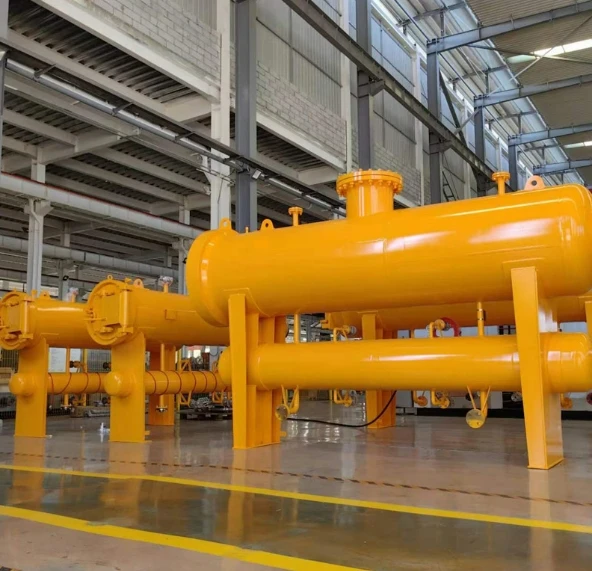
Dec . 04, 2024 12:11
Back to list
Creating a Filter Separator for Enhanced Data Processing Efficiency
Understanding Filter Separators in Industrial Applications
In various industrial processes, maintaining the purity and quality of products is crucial. One such method that plays a significant role in achieving this is the use of filter separators. These devices are essential in separating unwanted particles from gases or liquids, ensuring that the final output meets the required specifications for quality and safety.
What is a Filter Separator?
A filter separator is an equipment unit specifically designed to remove solid particles and liquids from a gas stream. It combines two primary functions filtration and separation. The filtration component involves trapping solid particles, while the separation function deals with removing liquid contaminants that may be mixed within the gas. This synergy is particularly vital in industries such as oil and gas, pharmaceuticals, and food processing, where the purity of materials can significantly impact product quality.
How Do Filter Separators Work?
Typically, a filter separator consists of a cylindrical housing that contains filtering elements and separation mechanisms. The process begins when the mixture of gas and contaminants enters the device. As the gas flows into the separator, it encounters a set of filter elements made from various materials, such as mesh or fabric. Here, the solid particles are trapped, ensuring that only clean gas continues through the system.
After filtration, the remaining gas enters a separation chamber where centrifugal forces or gravity come into play. In this chamber, heavier liquid contaminants are separated from the gas. The design of the separator often allows for liquid accumulation, which can be periodically drained away, while the cleansed gas proceeds to the next stage of processing or distribution.
Applications of Filter Separators
filter separator

The applications of filter separators are extensive. In the oil and gas industry, they are used to remove water and solid sediments from natural gas before it is transmitted through pipelines. This separation is critical not only for protecting the integrity of the pipeline system but also for ensuring that the gas meets regulatory standards.
In the pharmaceutical industry, filter separators maintain the purity of air and gases used in the manufacture of medicines. Contaminated air can compromise product sterility, leading to potentially unsafe products. Therefore, employing filter separators is essential to safeguard public health and comply with stringent industry regulations.
The food and beverage sector also benefits significantly from filter separators. These devices help in removing impurities from gases used in packaging and processing, ensuring that food products remain safe for consumption. Clean air and gas also contribute to prolonging the shelf life of perishable goods.
Benefits of Using Filter Separators
The advantages of implementing filter separators in industrial processes are manifold. Firstly, they enhance product quality by ensuring the end products are free from contaminants. Secondly, they contribute to equipment longevity by protecting machinery from the abrasive effects of solid particles and corrosive liquids. This can lead to reduced maintenance costs and increased operational efficiency.
Moreover, filter separators contribute to compliance with environmental regulations by minimizing the release of harmful substances into the atmosphere. By effectively removing pollutants, industries can operate more sustainably, aligning with both regulatory requirements and corporate social responsibility initiatives.
Conclusion
In summary, filter separators are indispensable tools in various industrial applications. Their ability to efficiently remove contaminants from gas streams not only ensures product quality but also protects equipment and helps meet environmental standards. As industries continue to evolve and regulatory pressures increase, the role of filter separators will only grow in importance, underscoring the need for advanced filtration technologies in modern manufacturing processes.
Latest news
-
Safety Valve Spring-Loaded Design Overpressure ProtectionNewsJul.25,2025
-
Precision Voltage Regulator AC5 Accuracy Grade PerformanceNewsJul.25,2025
-
Natural Gas Pressure Regulating Skid Industrial Pipeline ApplicationsNewsJul.25,2025
-
Natural Gas Filter Stainless Steel Mesh Element DesignNewsJul.25,2025
-
Gas Pressure Regulator Valve Direct-Acting Spring-Loaded DesignNewsJul.25,2025
-
Decompression Equipment Multi-Stage Heat Exchange System DesignNewsJul.25,2025

